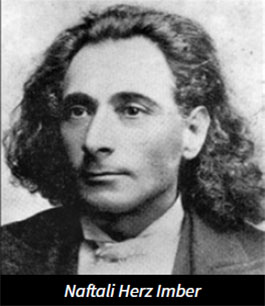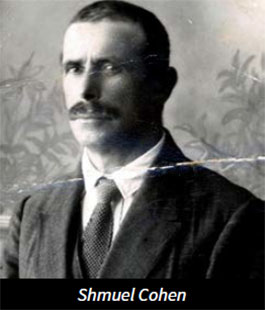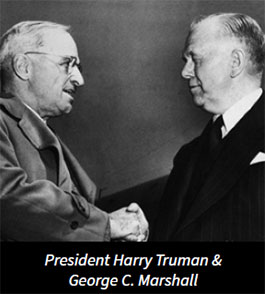All of us have specific memories that are indelibly impressed in our minds. Our wedding. The birth of a child. Or perhaps a moment of tragedy.
Whole societies can experience significant emotional events that become seared into collective memory. The World War II generation never forgot Pearl Harbor. Their children would long remember where they were when they learned of JFK’s assassination. I vividly remember watching the Challenger explosion and later the coverage of the 9/11 attacks.
Other historical events have altered the trajectory of nations and the world. That is why the Battle of Lexington and Concord (that initiated the American Revolutionary War) became “the shot heard around the world.”
In 1948, events in a remote corner of the world marked the fulfillment of ancient prophecies and hastened the approach of the End Times. Israel was reborn.
A Long-Awaited Promise
Beginning in AD 66, the Jews of Judea were decimated, exiled, or scattered. Mercilessly putting down the revolt that originated in the Galilee, the Roman Empire resolved to answer the “Jewish question”—at least as it involved the stiff-necked Jews in Palestina. So, at great expense Rome made an example of the Jewish rebels, besieging Jerusalem and even stomping out the last band of resistance at Masada.
During Herod the Great’s heavy-handed reign, Jewish resistance to Roman rule was squelched. When he died, his kingdom was divided, and the Roman garrison soon found itself opposed openly. Of course, the Jewish Messiah appeared during that same period offering true and eternal liberation—but the corrupt Jewish authorities ensured that He was executed by Roman hands.
Jesus had foretold the devastation that would fall upon Jerusalem. Because most Jews did not recognize the time of their visitation and embrace Him, God rejected them for a long and painful season.
Rejected, but not forsaken.
The Lord was not the first to prophesy the destruction and Diaspora (dispersion of the Jews). Moses was very clear about the alternative to God’s continued blessing on His chosen people. Deuteronomy 28 records his extensive warning about the consequence of disobedience. Instead of an unending stream of blessing, he said, “the LORD will scatter [the Children of Israel] among all peoples, from one end of the earth to the other end of the earth… Among those nations you shall find no rest, and there will be no resting place for the sole of your foot; but there the LORD will give you a trembling heart, failing of eyes, and despair of soul” (28:64-65).
He went on to describe the curse that would fall upon the land itself—the Promised Land that his people were about to go and possess for the first time. When God scattered the people, the Land itself would become “brimstone and salt, a burning waste, unsown and unproductive, and no grass grows in it” (Deuteronomy 29:23).
All of these curses would fall on Israel (people and Land) because the Jews forsook the covenant of the LORD, the God of their fathers (Deuteronomy 29:25).
But Moses also foresaw beyond that great calamity, promising, “If your outcasts are at the ends of the earth, from there the LORD your God will gather you, and from there He will bring you back. The LORD your God will bring you into the land which your fathers possessed, and you shall possess it; and He will prosper you and multiply you more than your fathers” (Deuteronomy 30:4-5).
That steadfast hope of that promise is why every Jew throughout the diaspora has ended the Passover seder with a hopeful prayer: “Next year in Jerusalem.”
A Flickering Hope
For over 1800 years, that glimmer of hope dwindled and grew increasingly faint. As Jews attempted to assimilate to living in strange societies and took on attributes of the people among whom they lived, the aspiration to return to the Land was more an unrealistic ideal than a motivating aspiration.
Because the curse on the Land was so overwhelming, there was little appeal to returning to a desolate wasteland. And, despite low-grade Antisemitism that occasionally burst into overt and violent persecution, Jewish people were relatively comfortable in places like Germany, Poland, and Russia.
This should come as no surprise. Human beings quickly adapt to new circumstances and accept the normality of their situation. That is why many Jews chose to remain in Babylon even when Nehemiah led some to return to Israel 2500 years ago. Quite a number of them still lived in Iraq until very recently, when Saddam Hussein drove them out. And, it is why there remains a large contingent of Israel-condemning Jews in Iran to this day.
To an outside observer, the idea that a widely dispersed people would uproot themselves once again and return to the God-forsaken place where they once lived seemed ludicrous. It would be as if people calling themselves Trojans decided to regroup after 3000 years and rebuild the lost city of Troy.
However, unlike the Trojans, the Jewish people maintained their identity through the long years of the diaspora. They honored ancient customs—although not always revering the God of their Fathers—in a way that unified them across the years and the miles. Passover, Hanukkah, Purim, and other Jewish holidays ensured a collective memory and shared hope.

By the late 1800s, the embers of that hope were stirring back into flame. In 1878, Jewish-Polish poet Naftali Herz Imber penned the words to “Hatikvah” (The Hope):
As long as in the heart, within,
The soul of a Jew still yearns,
And onward, towards the ends of the east,
An eye still gazes toward Zion;Our hope is not yet lost,
The hope of two thousand years,
To be a free nation in our land,
The land of Zion and Jerusalem.
Shmuel Cohen, a 17-year-old musician from Eastern Europe whose parents had immigrated to Palestine set the words to a Romanian melody in 1887. It became well-known throughout Zionist circles into the early 20th century and was adopted as the anthem of the Zionist circle in 1933. Although banned from public broadcast by the British Mandate government, “Hatikvah” would later become the national anthem of Israel.

As prophesied and promised, Israel’s Hope indeed springs eternal.
Odds Too Long to Wager On
Throughout the period of Diaspora, the Church took on an overwhelmingly Gentile flavor. Paul spoke of the Jewish rejection of the Gospel as the “reconciliation of the world” because it led to the Gospel itself being scattered far and wide over the earth (Romans 11:11-15). Tragically, many Gentile Christians assumed the Jewish obstinance was evidence that they had been cast aside, even though Paul insisted that was not the case (Romans 11:1-5).
But, witnessing the fulfillment of Moses’ prophecy regarding the wandering, outcast, despairing Jew, Gentiles too readily accepted the lie that God had washed His hands of the Jewish people. That was the attitude of “Christian” crusaders who streamed to the Middle East from 1050 to 1300—killing Jews with as much glee as they dispatched Muhammadans who had seized the Holy Land.
So, when Jews began to return to the Land that Mark Twain had testified was desolate and devoid of people, beasts, or vegetation, there was little popular support for their dream. Even Great Britain reneged on its Balfour Declaration promise to support the establishment of a Jewish homeland in Palestine. When push came to shove—and there was much pushing and shoving from the Arab world when Jews began to grow in number and influence—the British Mandatory authorities were decidedly pro-Arab and anti-Jewish.
Perhaps the greatest example of the inconceivability of Israel’s reestablishment is the counsel offered by America’s Secretary of State in 1948, George C. Marshall. General Marshall, whose strategic and geopolitical acumen was proven in World War II, was convinced that the overwhelming superiority of the combined Arab armies would mean a death sentence for the Jews. Marshall warned Harry Truman that if the President dared support Israeli independence, he would resign his position and then campaign and vote against him in the next election!

Thankfully, Truman had paid attention in Sunday School, and knew that while man sees only impossibilities, “with God all things are possible” (Matthew 19:26). And, when it comes to the prophecies of Scripture, a promise of God is an ironclad surety.
Impossibly long odds, or prophecy fulfilled? Many Christians were too ignorant of Bible prophecy to know the difference.
In the second and last part of this look into the Sign of Israel, we will explore the realization of God’s promise to bring the Jews back to the Promised Land.








Matthew 24:32-35 New King James Version
The Parable of the Fig Tree
32 “Now learn this parable from the fig tree: When its branch has already become tender and puts forth leaves, you know that summer is near. 33 So you also, when you see all these things, know that [a]it is near—at the doors! 34 Assuredly, I say to you, this generation will by no means pass away till all these things take place. 35 Heaven and earth will pass away, but My words will by no means pass away.
Then we will know soon enough because “before May 2028 aligns closely with the second reference of Sept or Oct of 2025”. The difference between the two dates is shown in that attached picture as 2 years 8 months and 5 days. Now let the words in Matthew 24:32-35 echo ” I say to you, this generation will by no means pass away till all these things take place”. Now let’s recall how Sept or Oct of 2025 came to be. It appears to be when Revelation 6:12 occurs And I beheld when he had opened the sixth seal, and, lo, there was a great earthquake; and the sun became black as sackcloth of hair, and the moon became as blood” viewable from Israel.
So, a person “mite live to be 80 years of age” and the words “by no means pass away” was made as reference to the current generation before Jesus Christ’s return.
No one is permitted to know the Day and Time when Jesus Christ will return but noting was said of the year or month.
By No Means is May 1948 + 80 years or before May 2028. Reference Psalm 90:10 below as maximum biblical age of 70-80.
Matthew 24:34 Assuredly, I say to you, this generation will by no means pass away till all these things take place. 35 Heaven and earth will pass away, but My words will by “no means pass away”.
Psalm 90:10 The days of our years are threescore years and ten; and if by reason of strength they be fourscore years, yet is their strength labour and sorrow; for it is soon cut off, and we fly away.
—————–
The most important signs are the ones that relate to Israel because God uses the Jews throughout the Scriptures as His prophetic time clock. By this I mean that very often when the Lord is revealing an important event that will take place in the future, He will point to the Jewish people and state that when a certain thing happens to them, the important event will also occur.
A good example of this principle can be found in Daniel 9 in the famous “Seventy Weeks of Years” prophecy. The prophet tells us to watch for a decree to be issued that will authorize the rebuilding of Jerusalem. He then says that the Messiah will come sixty-nine weeks of years (483 years) after that decree is issued to the Jewish people.
There are two key prophecies which relate the return of Jesus to events that have occurred in Jewish history since 1948. These two events clearly established the period in which we are now living as the season of the Lord’s return.
The State of Israel
The first is the re-establishment of the state of Israel, which occurred on May 14, 1948. Jesus singled out this event as the one that would signal His soon return.
His prophecy is contained in the fig tree parable (Matthew 24:32-35) which He presented in His Olivet Discourse. The day before He delivered this speech, He had put a curse on a barren fig tree, causing it to wither (Matthew 21:18-19). This was a symbolic prophecy that God would soon pour out His wrath upon the Jewish people because of their spiritual barrenness in rejecting His Son.
The next day, Jesus reminded His disciples of the fig tree. He said to watch for it to bloom again. In other words, He said watch for the rebirth of Israel. He indicated that when the fig tree blooms again, He would be at the gates of Heaven, ready to return (Matthew 24:33).
Equally significant, He added an interesting observation: “Truly I say to you, this generation will not pass away until all these things take place” (Matthew 24:34). What generation? The generation that sees the fig tree blossom.
We are that generation. The fig tree has blossomed. Jesus is at the gates.
The City of Jerusalem
https://christinprophecy.org/articles/jesus-is-coming-soon/
—————–
Matthew 24:33-34 New King James Version
33 So you also, when you see all these things, know that [a]it is near—at the doors! 34 Assuredly, I say to you, this generation will by no means pass away till all these things take place.
—————–
Matthew 24:18-19 New King James Version
The Fig Tree Withered
18 Now in the morning, as He returned to the city, He was hungry. 19 And seeing a fig tree by the road, He came to it and found nothing on it but leaves, and said to it, “Let no fruit grow on you ever again.” Immediately the fig tree withered away.
—————–
Matthew 24:32-35 New King James Version
The Parable of the Fig Tree
32 “Now learn this parable from the fig tree: When its branch has already become tender and puts forth leaves, you know that summer is near. 33 So you also, when you see all these things, know that [a]it is near—at the doors! 34 Assuredly, I say to you, this generation will by no means pass away till all these things take place. 35 Heaven and earth will pass away, but My words will by no means pass away.
The “moon became as blood”. Logically this passage in the Bible would take place from the point of view of the Jewish people. And they would of course be in Israel. So I asked the computer to come up with a date when this event in the Bible for the next full blood red moon will occur. This seems to be on September 7, 2025.
We are of course not permitted to know the day and time. But nothing was said of the year or month.
Revelation 6
King James Version
12 And I beheld when he had opened the sixth seal, and, lo, there was a great earthquake; and the sun became black as sackcloth of hair, and the moon became as blood.